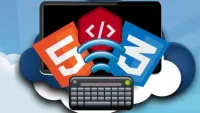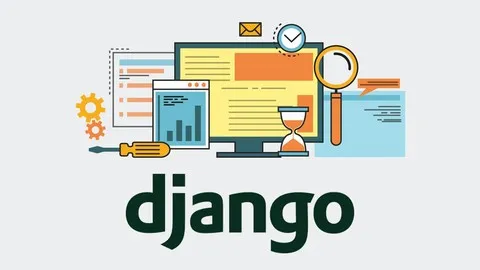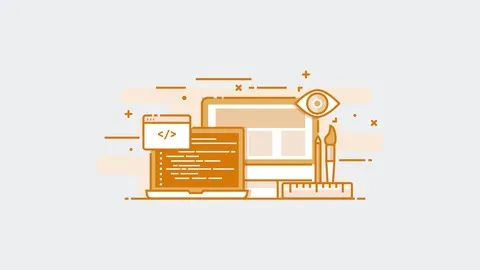
Try Django 111-Python Web Development 
This course covers the fundamentals of Python Web Development using Django 111. Learn how to create Function-Based Views and Class-Based Views, route URLs, integrate databases, query data, save data, create user profiles, set up emailing, create forms, validate forms, use the Python Shell, add Bootstrap to Django, create a search engine, and deploy to Heroku. This course is perfect for those looking to learn the basics of Python Web Development and Django 111. ▼
ADVERTISEMENT
Course Feature
![]() Cost:
Cost:
Free
![]() Provider:
Provider:
Udemy
![]() Certificate:
Certificate:
No Information
![]() Language:
Language:
English
![]() Start Date:
Start Date:
Self Paced
Course Overview
❗The content presented here is sourced directly from Udemy platform. For comprehensive course details, including enrollment information, simply click on the 'Go to class' link on our website.
Updated in [May 25th, 2023]
[Course Overview]
This course is designed to teach learners the fundamentals of Python web development using Django 111. It covers topics such as Function-Based Views and Class-Based Views in Python 3 and Django 1.11, routing of URLs, database integration, querying, data saving, Django best practices, user profiles, feeds of information, registration and activation, email setup, forms in Django, form validation, the Python shell, adding Bootstrap to Django, creating a search engine for internal use, and buttons. Learners will also learn how to deploy their Django applications to Heroku.
[Why to Learn]
Learning Python web development with Django 111 is a great way to gain the skills necessary to build powerful and dynamic web applications. Django is a powerful web framework that is easy to learn and use, and it is used by many of the world's leading companies. With this course, learners will gain the knowledge and skills to create their own web applications and deploy them to the web.
[Development Paths]
This course is designed to provide learners with the foundational knowledge and skills necessary to build web applications with Django 111. After completing this course, learners can continue their development by exploring more advanced topics such as authentication and authorization, creating APIs, and deploying applications to the cloud. Additionally, learners can explore other web frameworks such as Flask and Ruby on Rails.
[Related Learning Suggestions]
In addition to this course, learners can explore other courses related to Python web development. These include courses on HTML and CSS, JavaScript, and SQL. Additionally, learners can explore courses on web development frameworks such as Flask and Ruby on Rails. Finally, learners can explore courses on deploying applications to the cloud, such as Amazon Web Services and Google Cloud Platform.
[Applications]
After taking this course, students should be able to apply their knowledge of Django to create web applications. They should be able to create user profiles, set up routing of URLs, integrate databases, query data, save data in the database, create forms, validate forms, add Bootstrap to Django, create a search engine, and deploy their applications to Heroku. Additionally, they should be familiar with best practices for Django and be able to use the Python shell and Django.
[Career Paths]
1. Web Developer: Web developers are responsible for creating and maintaining websites. They use a variety of programming languages and frameworks, such as HTML, CSS, JavaScript, and Django, to create websites that are both functional and aesthetically pleasing. Web developers must also be able to troubleshoot and debug any issues that arise with a website. The demand for web developers is growing rapidly, as more businesses are relying on websites to reach their customers.
2. Database Administrator: Database administrators are responsible for managing and maintaining databases. They must be knowledgeable in database design, development, and security. They must also be able to troubleshoot and debug any issues that arise with a database. Database administrators must be familiar with the Django framework, as it is used to create and manage databases.
3. Software Engineer: Software engineers are responsible for designing, developing, and testing software applications. They must be knowledgeable in a variety of programming languages, such as Python, Java, and C++. They must also be familiar with the Django framework, as it is used to create and manage software applications. The demand for software engineers is growing rapidly, as more businesses are relying on software applications to reach their customers.
4. DevOps Engineer: DevOps engineers are responsible for managing and maintaining the infrastructure of an organization. They must be knowledgeable in a variety of technologies, such as cloud computing, virtualization, and automation. They must also be familiar with the Django framework, as it is used to create and manage the infrastructure of an organization. The demand for DevOps engineers is growing rapidly, as more businesses are relying on DevOps to ensure their infrastructure is secure and reliable.
[Education Paths]
1. Bachelor of Science in Computer Science: This degree path provides students with a comprehensive understanding of computer science fundamentals, including programming, software engineering, computer architecture, and operating systems. Students will also learn about the latest trends in computer science, such as artificial intelligence, machine learning, and data science. This degree path is ideal for those looking to pursue a career in software development, web development, or data science.
2. Master of Science in Computer Science: This degree path provides students with an advanced understanding of computer science fundamentals, including programming, software engineering, computer architecture, and operating systems. Students will also learn about the latest trends in computer science, such as artificial intelligence, machine learning, and data science. This degree path is ideal for those looking to pursue a career in software development, web development, or data science.
3. Bachelor of Science in Web Development: This degree path provides students with a comprehensive understanding of web development fundamentals, including HTML, CSS, JavaScript, and other web development technologies. Students will also learn about the latest trends in web development, such as responsive design, mobile development, and web security. This degree path is ideal for those looking to pursue a career in web development, web design, or web security.
4. Master of Science in Web Development: This degree path provides students with an advanced understanding of web development fundamentals, including HTML, CSS, JavaScript, and other web development technologies. Students will also learn about the latest trends in web development, such as responsive design, mobile development, and web security. This degree path is ideal for those looking to pursue a career in web development, web design, or web security.
Pros & Cons

Good course content

Very nice course

Learn a bunch of new things

Availability of documentation and tutorials

Best coding practices

Not enough free courses

Could be more comprehensive
Course Provider

Provider Udemy's Stats at AZClass
Discussion and Reviews
0.0 (Based on 0 reviews)
Explore Similar Online Courses

Powerful Instagram Sales Funnel to Grow Your Business

Get started Creating Websites Everything you need provided

Python for Informatics: Exploring Information

Social Network Analysis

Introduction to Systematic Review and Meta-Analysis

The Analytics Edge

DCO042 - Python For Informatics

Causal Diagrams: Draw Your Assumptions Before Your Conclusions

Whole genome sequencing of bacterial genomes - tools and applications

Django 22 & Python The Ultimate Web Development Bootcamp

Complete Python Django Single-Page App

Django Takeoff: Developing Modern Applications
 Related Categories
Related Categories
Quiz
 Submitted Sucessfully
Submitted Sucessfully
1. What is the main purpose of this course?
2. Which of the following is not covered in this course?
3. Which of the following is required in this course?
4. What is the name of the framework used in this course?
Correct Answer: Django


Start your review of Try Django 111-Python Web Development